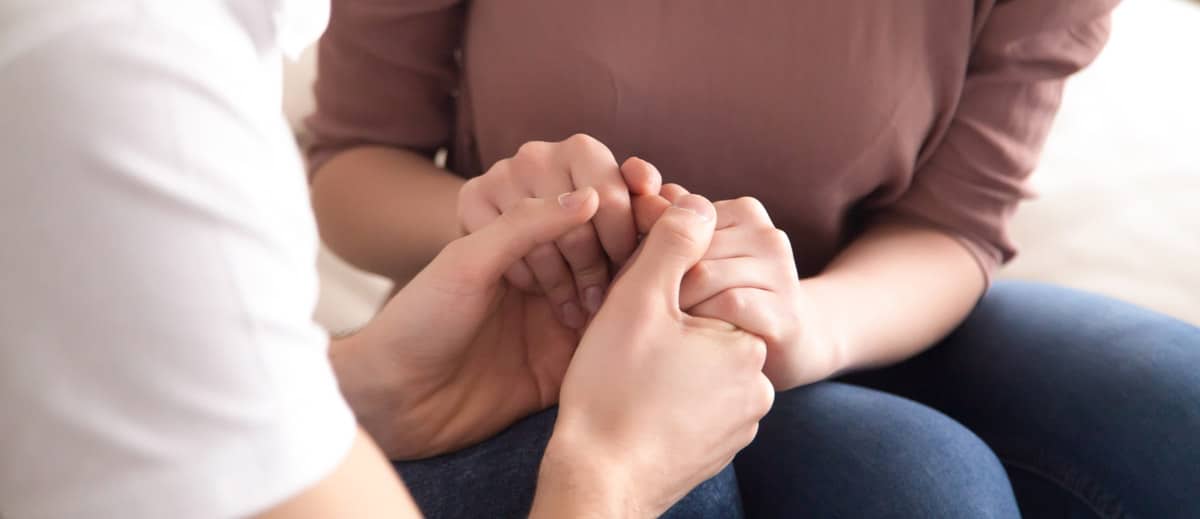
How to Work Step 9
“Made direct amends to such people wherever possible…”
Table of contents
If you’re working through the 12-Step program for addiction recovery, Step 9 can be a challenging one. Although the 12 Steps are a popular method for recovery among people worldwide, it requires a great deal of hard work and dedication to complete them all.
In this article, we’ll take a closer look at Step 9, specifically. We’ll help you understand it’s purpose and also give you helpful tips and printable worksheets so you can get started working this step alongside sober peers, with a counselor, or with your sponsor.
What are the 12 Steps of Alcoholics Anonymous (AA)?
Step 1: We admitted we were powerless over alcohol — that our lives had become unmanageable.
Step 2: Came to believe that a Power greater than ourselves could restore us to sanity.
Step 3: Made a decision to turn our will and our lives over to the care of God as we understood Him.
Step 4: Made a searching and fearless moral inventory of ourselves.
Step 5: Admitted to God, to ourselves and to another human being the exact nature of our wrongs.
Step 6: Were entirely ready to have God remove all these defects of character.
Step 7: Humbly asked Him to remove our shortcomings.
Step 8: Made a list of all persons we had harmed and became willing to make amends to them all.
Step 9: Made direct amends to such people wherever possible, except when to do so would injure them or others.
Step 10: Continued to take personal inventory and when we were wrong promptly admitted it.
Step 11: Sought through prayer and meditation to improve our conscious contact with God, as we understood Him, praying only for knowledge of His will for us and the power to carry that out.
Step 12: Having had a spiritual awakening as the result of these steps, we tried to carry this message to alcoholics, and to practice these principles in all our affairs.
Why Is Step 9 Of the 12-Step Program Important?
Step 9 requires that you face your past and the truth about your behaviors to deal with them properly. You must be willing to make things right so the issue doesn’t arise again and become a trigger for relapse.
In dealing with your mistakes properly, you can put them behind you and move forward with your new sober life. This will also pave the way for you to repair damaged relationships and establish new, healthy ones.
Although making amends might sound pretty simple, it can be a complex task. In some instances, your friends and loved ones might not be ready to make amends with you. If this happens, it can be hard, but it’s important to recognize that everyone heals and grows at their own pace. You are only responsible for your behavior. So, if someone is not ready to accept your amends, you can simply walk away knowing you did what was right. In the future, the person may be ready to move forward in the relationship, or, it may not be repairable.
While you’re working Step 9, you may also discover that sometimes it’s impossible to make direct amends. For example, if a person has passed away, or your attempt to make amends would injure or hurt someone else, it’s okay to make indirect amends or not make amends at all.
How Should I Work Step 9 of the 12-Step Program?
As you begin working Step 9 of the 12-Step program, you’ll likely find that the process of making amends is not as easy as it sounds. Here are a few tips that may help you get through it.
- Try to be accepting of others’ responses. Although you likely hope that others will accept your amends and want to move forward to establish a better relationship, that may not always be the case. It’s important to prepare yourself for that possibility and try to be accepting of others’ responses. If someone does not want to hear from you, don’t push it. Instead, accept the fact that they may not be ready to speak with you and move on.
- Seek help from a sponsor or treatment professional. Steps 8 and 9 of the 12-Step Program can be very challenging. As a result, it’s best to get help from someone with personal or professional experience with the 12 Steps. Having an outsider’s opinion and insight will be helpful as you make your list (Step 8) and begin making your amends (Step 9).
- Don’t allow yourself to be overcome by shame. As you revisit your past behavior to make amends with others, it’s easy to get overwhelmed by shame and regret. However, it’s important to remember that you’re taking steps to change your life, and in doing so, you are breaking the cycle of shame that keeps you trapped in your addiction. No one is perfect and you should be proud of the work you’re doing to repair and rebuild relationships.
Printable AA Step Nine Worksheets
Although the tips listed above can help you as you begin working Step 9, you can also use these printable Step Nine worksheets. Below is one online resource that may help. If you’re working with a sponsor or an addiction treatment professional at a treatment center, you can also ask them for additional AA worksheets.
Who Can Help Me Work the 9th Step of the 12-Step Program?
Briarwood Detox Center provides safe and effective individualized detox programs to help people overcome drug and alcohol dependence and addiction. For many people, a part of starting a new life of sobriety is adopting the 12-Step Program and the values that come with it. Although it’s not necessary, working the 12 Steps can be very helpful to sustain a sober lifestyle.
At Briarwood, we want to support you in every way we can! As such, we provide one-on-one clinical support and access to 12-Step resources like H&I meetings. During these meetings, you’ll get to hear from other sober individuals who have had similar life experiences and have overcome their addictions. You’ll also get to mingle with potential sponsors and other people in detox with you to start building a strong foundation of recovery support.
After detox, the caring professionals at Briarwood Detox Center can also help you get into a rehab program, if that’s what you decide to do. Depending on your needs, you may choose to attend one of the following types of addiction treatment programs or support services:
The compassionate team at Briarwood Detox Center is available to help you when you’re ready to make a change. We work with many insurance providers. Please call (512) 262-4426 or contact us online to learn more about our individualized drug and alcohol detox programs.
Break Free From Your Addiction Today
(in 3 easy, confidential steps)

Verify your insurance
Complete our fast, free, and easy verification process over the phone to determine the extent of your insurance coverage.

Make an informed decision
We will provide personalized placement recommendations based on your insurance, treatment needs, financial situation, and schedule.

Contact us
Call (888) 857-0557 or fill out our online form for a free and confidential personal consultation with an admissions specialist.








